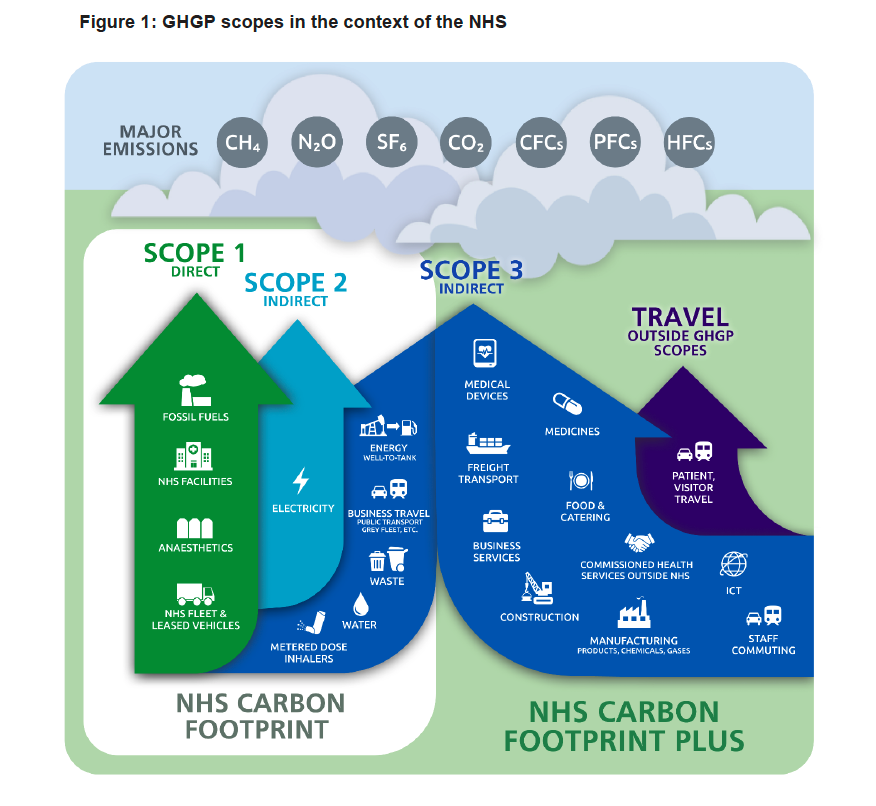 Photo credit: NHS England
Photo credit: NHS England
NHS England has commited to achieving net zero greenhouse gas emissions. In a new report they outline the direction, scale and pace of change. Set against a 1990 baseline, the NHS sets two clear targets:
- The NHS Carbon Footprint (emissions they control directly), will be net zero by 2040, with ambition to reach an 80% reduction from 2028-2032.
- The NHS Carbon Footprint Plus (emissions they can influence), will be net zero by 2045, with ambition to reach an 80% reduction from 2036-2039.
The report 'Delivering a net-zero national health service provides a detailed account of the NHS’ modelling and analytics underpinning the latest NHS carbon footprint, trajectories to net zero and the interventions required to achieve that ambition. It lays out the direction, scale and pace of change.
Download the NHS England report Delivering a net-zero national health service.
On food, catering and nutrition, the report states:
"It is estimated that food and catering services in the NHS produces 1,543 ktCO2e each year, equating to approximately 6% of total emissions. Healthier, locally sourced food can improve wellbeing while cutting emissions related to agriculture, transport, storage and waste across the supply chain and on NHS estate."
The report signals that the Hospital Food Review will be an important means of delivering healthy and climate-friendly food standards that will "signal a more systematic approach to procuring and producing sustainable and healthy food for patients, visitors and staff". NHS England indicates that this may include "ensuring suppliers have sustainable production and transportation practices, sourcing local supplies of food, the use of seasonal produce, increased use of sustainably sourced fish and efforts to limit food waste". Healthy eating guidelines will be linked to the government’s EatWell plate, which recommends a diet with reduced processed foods high in sugar, salt and fats as part of a healthy balance, "which is also a low-carbon diet".
Evidence submitted to the NHS England review most frequently focused on increasing plant-based food and drink options available to patients, staff and visitors, notably for in-patient meals. Evidence submitted highlighted both the environmental and health benefits of an increased consumption of plants and a reduction in consumption of highly processed foods. Benefits include significant reductions in carbon emissions, water consumption, land-use needed for food production and a reduced risk of cardiovascular disease, stroke and obesity.
Climate Change and Nature: Sustain has taken a keen interest in the rapidly accumulating evidence about the effect of food and farming on climate change and nature, as scientific evidence emerges that our food system is a very significant contributor to greenhouse gas emissions and biodiversity loss.
Sustain
The Green House
244-254 Cambridge Heath Road
London E2 9DA
020 3559 6777
sustain@sustainweb.org
Sustain advocates food and agriculture policies and practices that enhance the health and welfare of people and animals, improve the working and living environment, promote equity and enrich society and culture.
© Sustain 2024
Registered charity (no. 1018643)
Data privacy & cookies







